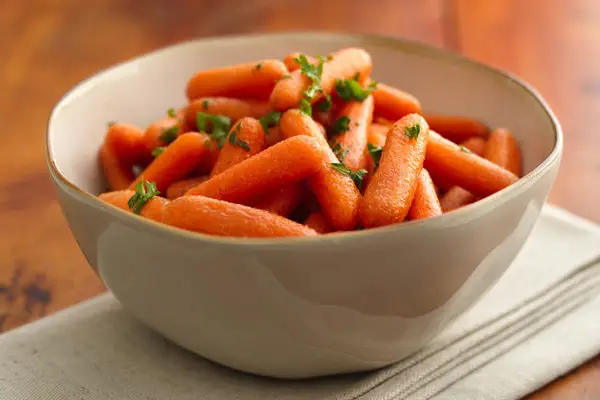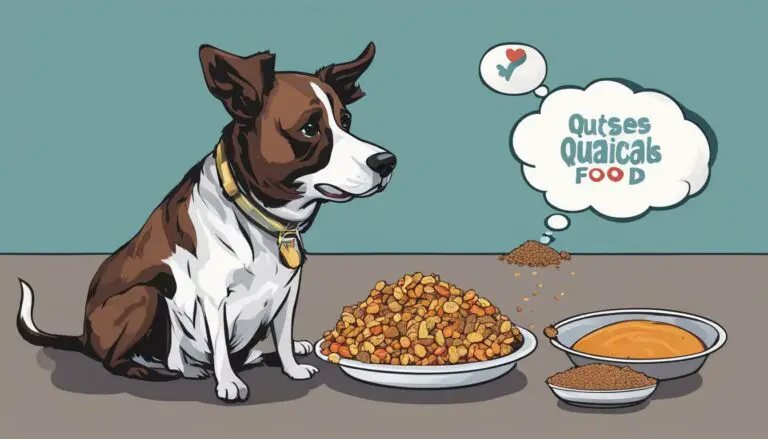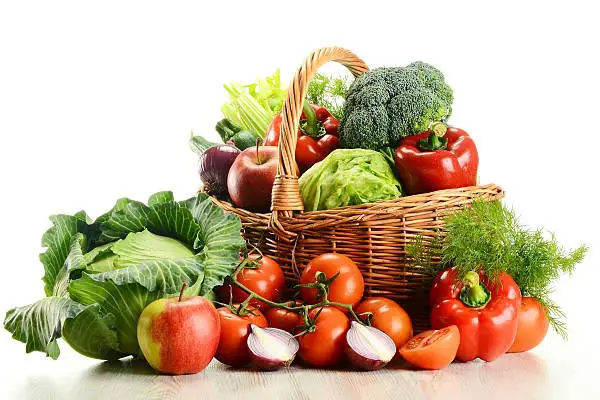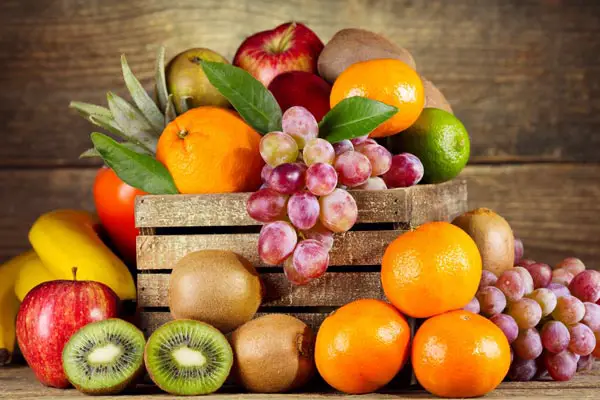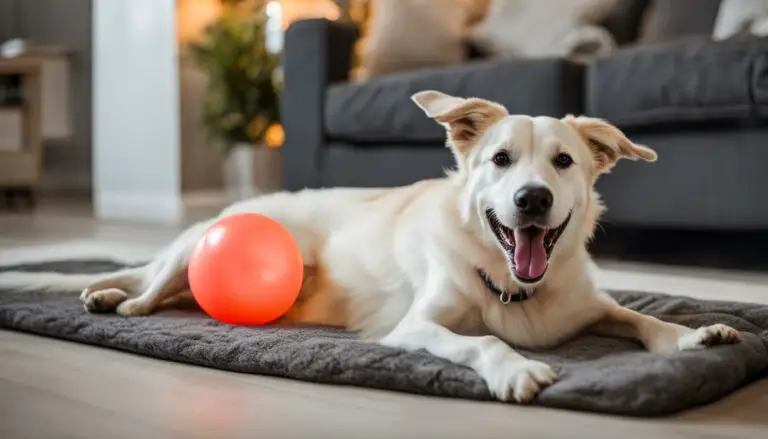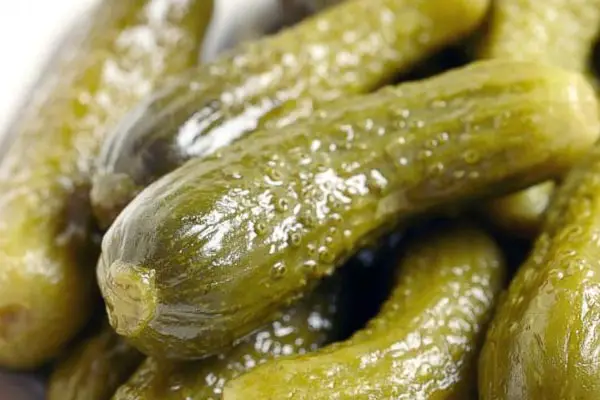Decoding the Health Benefits of Feeding Carrots to Your Dogs
If you’re looking for a safe and healthy snack to feed your dog, try carrots. Your dog can eat both raw and cooked carrots, and the America Kennel Club links feeding your dog carrots to several health benefits. If you’re curious how to feed your dog carrots and more, read on.
Can You Give Your Dog Raw Carrots?
Carrots are very low in calories as well as being high in important vitamins and minerals.
According to the Journal of Biological Chemistry, you can feed your dog raw carrots as a low-calorie treat without any adverse side effects.
Aside from the vitamins and minerals, letting your dog chew on a whole carrot can help clean plaque off of their teeth and improve their dental health.
You do want to keep this as more of an alternative treatment rather than giving it to them every day.
Dogs like variety and they can stop enjoying carrots if they eat them all of the time.
Are Too Many Carrots Bad for Dogs?
Too much of any type of food can have adverse reactions on your dog’s digestive system, including something as healthy as carrots.
According to Dr. Peter Dobias, your dog’s digestive tract is too short, and carrots have around 14 percent per carrot.
So feeding them too many carrots or feeding them carrots every day can cause your dog to experience digestive upset.
Can a Puppy Eat a Raw Carrot?
Yes, puppies can eat raw carrots when you wean them, and they start eating solid foods.
According to BarkSpace, you may want to cut any carrots you give your puppy or smaller dog up into small pieces to reduce the risk of them choking.
They’re also high in sugar content, and this can lead to weight gain, so you do want to limit the number of carrots you feed to your puppy.
Are Carrots Good For Dog’s Eyes?
Carrots contain high amounts of beta-carotene, and beta-carotene is stored in your dog’s liver and converted into vitamin A.
Vitamin A is then transported to the retina of your dog’s eye, and this can help to protect against cataract formation and promote eye health.
According to MDPI.com, it’s also a good source of Lutein and Zeaxanthin Carotenoids, and these two nutrients also help to promote your dog’s eye health as they age.
How Many Carrots Can You Give Your Dog Per Day?
As we mentioned before, feeding your dog carrots every day can lead to digestive problems because their digestive systems are too short to digest the complex carbohydrates carrots contain. Ideally, you don’t want to feed your dog carrots every day.
According to the American Kennel Club, you should feed your dog carrots one or two times a week at the most to help avoid any digestive problems.
Can a Puppy Eat Cooked Carrots?
Yes, puppies can eat both raw and cooked carrots a few times a week without a problem.
Cooked carrots can be mixed into your puppy’s food for an added nutritional boost, and the soft texture removes the chances of your puppy choking when they eat it.
According to Scientific America, cooking carrots can actually increase the level of antioxidants that they release, as well as the levels of carotenoids.
How Many Baby Carrots Can You Feed Your Dog?
How many baby carrots you feed your dog per feeding session depends on your dog’s weight because larger dogs can digest more carrots than smaller dogs.
Dr. Jeff Feinman says that you can feed your two or three baby carrots every few days for smaller dogs and larger dogs can have between five and six.
If you notice that your dog seems to be having problems digesting the number of carrots you’re feeding them, reduce it to one or two baby carrots every few days.
Carrots for Dogs with Dental Health
Carrots make an excellent chew that helps to clean your dog’s teeth. You can freeze it for a few hours before you give it to your dog, so they have to work on it more.
Carrots are dense and fibrous, and this is what helps to scrub the plaque and stuck on food off your dog’s teeth as they chew on it.
According to the MSPCA.org, the carrots that you give to your dog to chew on should be larger to avoid choking.
They work to clean your dog’s teeth if they’re raw and not frozen as well. This should also be given in moderation because your dog can still have trouble digesting large amounts of it.
Carrots for Dogs as Low-Fat Treat Alternatives
If you don’t want to mix your carrots into your dog’s food, you can use them as a low-fat treat alternative.
They’re great for people who are trying to get their dogs to lose weight as well. Weight Loss Resources says that a single carrot only has 17 calories, but they contain a lot of fiber so they’re filling.
You can cut your carrots off into little chunks, feed them whole, or shred them and give them to your dogs as a treat.
Nutritional Value of 3.5 Ounces (100 Grams) of Carrots
According to NutritionValue.org, the nutritional value in 3.5 ounces or 100 grams of carrots is:
- Calories – 41
- Water – 88 Percent
- Protein – 0.9 Grams
- Carbohydrates – 9.6 Grams
- Sugar – 4.7 Grams
- Fiber – 2.8 Grams
- Fat – 0.2 Grams
- Saturated Fat – 0.04 Grams
- Monosaturated Fat – 0.01 Grams
- Polyunsaturated Fat – 0.12 Grams
- Omega-3 Fatty Acids – 0 Grams
- Omega-6 Fatty Acids – 0.12 Grams
- Trans Fat – 0
Nutritional Benefits Of Carrots For Your Dog
In addition to helping protect your dog’s eyes and reduce plaque on their teeth, there are several other health benefits associated with feeding your dog carrots.
- Antioxidants: Carrots are a good source of natural antioxidants. Antioxidants help to regulate your dog’s metabolism and they reduce the amount of cell damage that is caused by aging. According to NCBI.gov, antioxidants also help to reduce inflammation around your dog’s joints.
- Beta-Carotene: Beta-carotene is converted by your dog’s liver into Vitamin A. Vitamin A is important for supporting your dog’s immune system, their cardiovascular system, and the liver, kidneys, and lungs. A single carrot will give your dog 278 percent of their daily vitamin A dosage.
- Falcarinol: Falcarinol is a fatty alcohol that is naturally found in carrots. The Carrot Museum has studies that show that amounts of this fatty alcohol can reduce the risk of cancer in dogs. This includes lung and colon cancers.
- Low Calorie and High Fiber: 100 grams of carrot has around 41 calories and 2.8 grams of fiber. This means that it will make your dog feel full faster without adding a lot of additional calories. In turn, it can help control your dog’s weight.
How to Prepare Carrots for Your Dog
If you don’t want to feed your dog raw carrots, you can prepare them in a variety of ways.
You can cut thin chips of carrot and put it on a baking sheet at 4250 degrees for 15 to 20 minutes to make crunchy carrot chips. This video demonstrates how to make them.
You can also boil your carrots until they get soft and make a mash out of them. You can sprinkle this mash over your dog’s food or mix it right in every few days, so they get a vitamin and nutrient boost.
Finally, you can steam the carrots by placing two inches of water in a pan and letting the carrots sit in a steam basket over the boiling water for 10 minutes.
Are Carrots Safe for Dogs?
Yes, as long as your feed carrots to your dog in moderation, they’re considered to be safe for your dog.
If your dog doesn’t seem to tolerate the carrots very well or if you have concerns, it’s always a good idea to talk to your veterinarian.
You might also want to start out slow when you introduce them to carrots because any changes in your dog’s diet can cause digestive upset.
Are Carrots Healthy of Toxic?
In smaller amounts, carrots are a healthy food source for your dog, and they’re not toxic either way.
As WikiVet.net points out, your dog will have trouble digesting large amounts of carrots because of their shorter digestive tracts, and this can cause problems like throwing up, diarrhea, and upset stomach.
This is why it’s a good idea to start with a small number of carrots and slowly increase it.
Can Dogs Eat Broccoli and Carrots?
Your dog can eat both carrots and broccoli, but broccoli is better for your dog if it is raw.
Where boiling your carrots can increase the nutrient content or the beta-carotene, boiling broccoli can reduce the levels of vitamin C.
According to the Journal of Agricultural and Food Chemistry, boiling broccoli breaks down important enzymes, and this lowers their nutrient content.
You could boil the carrots and cut up the broccoli in small pieces and mix it into your dog’s food a few times a week to give them the added vitamins and nutrients.
You may also want to feed your dogs the broccoli stalks instead of the heads because they’re more prone to eating it.
Can Dogs Eat Peas and Carrots?
According to the American Kennel Club, green peas like sugar snap or garden peas are one of the healthiest human foods that you can feed to your dog.
They’re an excellent source of vitamins and minerals including vitamins A, K, and B.
They have high amounts of lutein, and this is an antioxidant that helps to support your dog’s eye, skin, and heart health.
You can add peas straight to your dog’s food raw, fresh, or frozen. You do want to shell them because the pods can be a choking hazard if they get caught in your dog’s throat.
Mix the peas with small pieces of carrots and add them to your dog’s food.
Health Benefits of Carrots for Dogs
Several health benefits come with feeding your dog a regular amount of carrots.
- Coat and Skin Health: Carrots have a high amount of Vitamin A, and this vitamin is an essential part of keeping your dog’s skin and coat healthy. It supports the immune system, and this can help with dry skin or a dull-looking coat.
- Dental Health: As your dog ages, plaque can build upon their teeth from their food. Allowing your dog to chew on carrots can gently scrape the plaque off of your dog’s teeth. This can prevent gum inflammation, plaque build-up, and tooth decay.
- Regulating the Digestive Tract: The amount of fiber that is naturally found in carrots can help to regulate your dog’s digestive system. This means that your dog will go to the bathroom on a regular schedule, and it can help to reduce the chances that your dog suffers from constipation.
- Worm Prevention: If your dog has worms, coarsely chopping up a few carrots and adding them to your dog’s food can help get rid of them. The course pieces of carrots will gently scrape along your dog’s stomach and help to dislodge and parasites or worms.
Carrots are an inexpensive and healthy meal additive or snack that you can feed to your dog several times a week.
They’re packed full of vitamins, minerals, and nutrients that can benefit your dog both internally and externally.
Your dog can be happier and healthier when they have carrots, and you can feel like a great pet parent.
